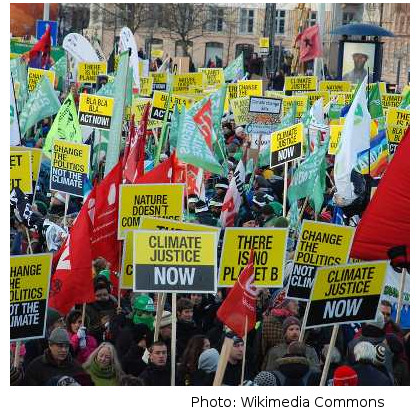|
Summary
This project focuses on
communication practices in
order to understand how citizenship and political participation are
constructed in relation to climate change, energy policies and other
environmental issues. COMPOLIS also aims to shed light on people’s
views of their political selves and of spaces for participation and
engagement, and to draw connections between those perceptions and
different discursive constructions of politics and citizenship.
 In
the last few decades, processes of political decision-making on
several types of issues have been adjusted in order to ensure that ‘the
public’ has a say. In fact, public participation and citizen engagement
with policy-making are widely called for in academic and political
circles, but, as shown by existing research, such engagement is rather
limited and constrained in its potential. In
the last few decades, processes of political decision-making on
several types of issues have been adjusted in order to ensure that ‘the
public’ has a say. In fact, public participation and citizen engagement
with policy-making are widely called for in academic and political
circles, but, as shown by existing research, such engagement is rather
limited and constrained in its potential.
Despite the difficulties
involved in public participation, contemporary
societies are faced with major challenges that can only be effectively
addressed with sustained citizen engagement. Climate change and energy
security are two of those key challenges, which are tightly related.
The far-reaching
transformations that are needed to respond to climate
change and to move to a different model of energy production and use
require citizens engagement at the political level: decisions have to
be made in a democratic way that is simultaneously inclusive and
effective in the long-term.
This project will focus on
public participation in political processes
associated with climate change, energy and other key environmental
issues, and will look at the role of discursive practices (e.g.
political and institutional texts, media texts, texts from
non-governmental organizations) in political engagement.
 People’s
understanding of political processes and of the role of
citizens therein is mediated by different forms of communication, such
as political, media and civic discourses. Yet, thorough communication
studies of political engagement are missing. People’s
understanding of political processes and of the role of
citizens therein is mediated by different forms of communication, such
as political, media and civic discourses. Yet, thorough communication
studies of political engagement are missing.
Little is known about
people’s sense of their political selves, the
extent to which they feel that they can impact on policy-making and the
extent to which all of this connects to different discourses. In other
words, the symbolic conditions that shape citizens’ disposition to
engage (or not) with political processes are crucial to democratic
politics but clearly under-researched.
COMPOLIS is concerned with
how communication practices may or not
contribute to transform political engagement. The project looks at
citizenship and political engagement as social constructs that are
mediated by multiple communication practices and examines the relation
between a sense of political powerlessness and the symbolic environment
in which current democratic politics is enacted, as well as how a new
social movement may open up new political possibilities.
It involves an
analysis of political participation and political
subjectivities in relation to climate change, energy and other
environmental issues, to be conducted through interviews, focus groups
and text analysis, as well as an in-depth study of engagement within
Transition, an international movement that promotes social change to
address climate change and energy challenges. This latter study will be
carried out through interviews, observation and text analysis.
|

